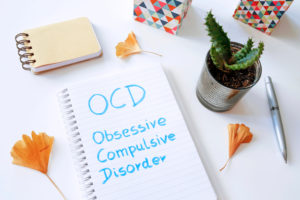Which Form of Meditation is Right for You?

The purpose of meditation is to promote mental and physical well-being, and is a way of reconnecting body and mind. Many cultures throughout history have practised meditation with the goal of achieving total inner peace.
In this article we will discuss the various meditation techniques, how they can benefit your health, and whether meditation can help you. If you feel that meditation can help, our meditation services in Newcastle can help to get you started.
What is meditation?
Many people think of meditation as clearing your mind of all thoughts, though this isn’t always the aim. The mind has a tendency to remain active, even when you are relaxing, and the brain’s natural tendency is to think and problem solve. Too much of this however can lead to “overthinking”, worry or over-analysing which can cause problems in day to day life.
One school of meditation, “Mindfulness Meditation“, teaches you to be aware of your thoughts, feelings and actions and to respond to them in a more detached or observing way.
Many people who are experienced in meditation liken the experience to noticing thoughts pass through the mind like clouds in the sky, hearing their thoughts in the background like radio chatter, or watching them pass through your consciousness like busy traffic on the road outside.
The aim of meditation is to notice your thoughts and choose whether to hold on or let go of them, changing their level of emotional impact.
Types of meditation
There are several ways to practise meditation, and not every method will suit the same person or problem (e.g. Meditation for depression might not be appropriate for treating insomnia or anxiety, etc.).
Meditation is a very personal endeavour, and when taking part it is important to find a method that works for you. Below are some methods you can try.
Guided Meditation
Most people begin their meditation journey through guided meditations whether online, through an app or class. There are many guided meditations available and each tend to have a different focus.
Learning meditation with a teacher who can facilitate and guide meditations in either a one-to-one or small group setting (such as with our Specialist Mindfulness Teacher at Newcastle Psychologist & Counselling) can help you progress and develop your focus more quickly.
This way your teacher can guide you on the correct posture, mindset and visualisation or focus for the meditation, and cue you into tuning in to sensations, images, emotions or thoughts at each given point in the meditation.
Even taking part in a class can be helpful in many ways, though you are likely to get less individual attention and meditations are likely to be less focused on your specific goals.
Mindfulness Meditation
Mindfulness Meditation is about being mindful of whatever thoughts, feelings and urges might be going through your mind at any one time.
The goal of Mindfulness Meditation is to focus on the present moment, and to let go of any dwelling on the past or worry about the future. By doing this, we become more able to notice unhelpful thinking patterns and letting go of painful thoughts and feelings.
More and more research is showing that Mindfulness Meditation helps with problems such as depression, anxiety, insomnia, anger management, addictions, and even trauma. It is also especially helpful in preventing relapse in those that might have been through Cognitive-Behavioural Therapy or counselling for depression or any of the above problems.
Mantra Meditation
A mantra is a word or sound used to aid concentration during mediation.
There can be many words and/or sounds which can be used to help you remain focussed on one point in time. There are many mantras to be found online and usually include positive affirmations (“I can cope with this”) or even sounds (“ommm”).
If trying mantra meditation, it is suggested that you experiment and choose the ones that you find most helpful.
Breathing Meditation
Breathing techniques and focusing on the breath are a common way of meditating.
In this type of mediation you use your breathing as the focal point in place of a mantra and sometimes you might vary or experiment with the rhythm, depth or rate of your breath. Sometimes you might also visualise the breath, or a colour, entering or leaving the body as you breathe.
Learning to control your breathing can help you manage physical health problems such as asthma, high blood pressure, and even physical pain. It can also help relaxation.
There are many variations of breathing meditation such as visualising positive thoughts and feelings being drawn in on the in breath, and negative ones being released on the out breath.
In Summary
These are some examples of different meditation techniques that can help aid relaxation and overcome problems such as stress, depression, anxiety, anger, insomnia, as well as help manage physical pain.
If you are interested in trying any form of meditation but aren’t sure where to begin, get in touch with us about our specialist meditation services in Newcastle using the form below.

Best wishes,
Dr Stuart Sadler
Lead Clinical Psychologist



